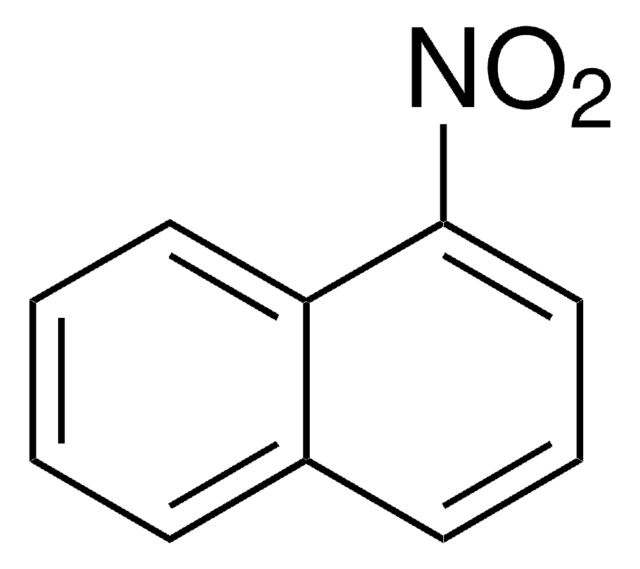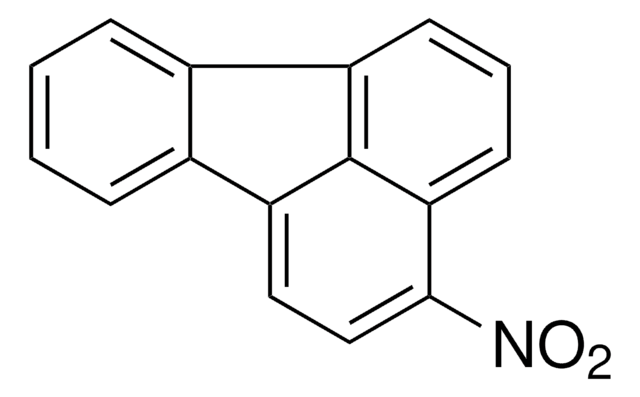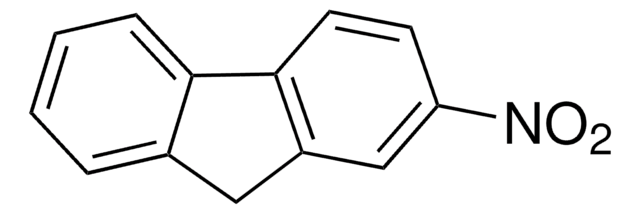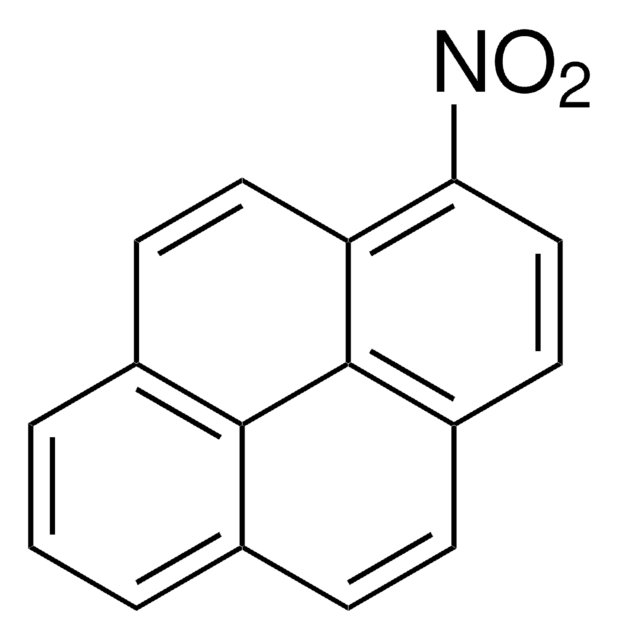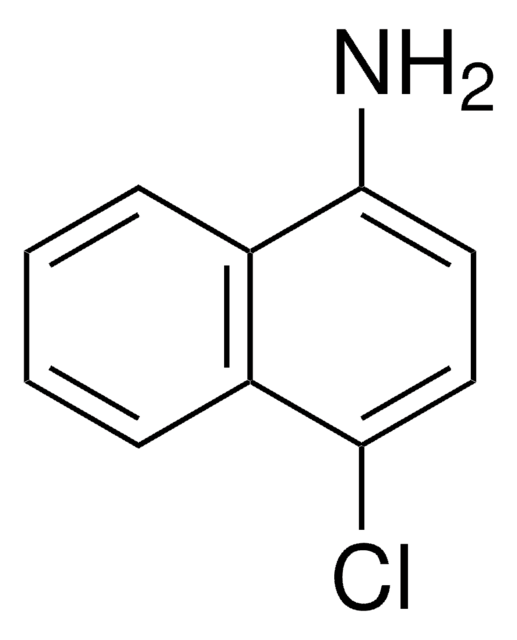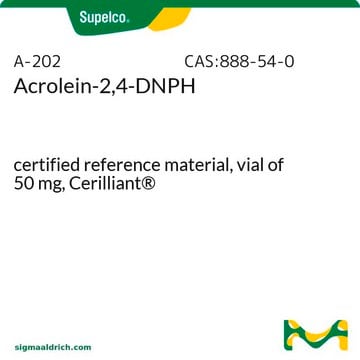BCR306
1-Nitronaphthalene
BCR®, certified reference material
About This Item
Recommended Products
grade
certified reference material
Agency
BCR®
manufacturer/tradename
JRC
technique(s)
HPLC: suitable
gas chromatography (GC): suitable
bp
304 °C (lit.)
mp
53-57 °C (lit.)
density
1.223 g/mL at 25 °C (lit.)
format
neat
storage temp.
2-8°C
SMILES string
[O-][N+](=O)c1cccc2ccccc12
InChI
1S/C10H7NO2/c12-11(13)10-7-3-5-8-4-1-2-6-9(8)10/h1-7H
InChI key
RJKGJBPXVHTNJL-UHFFFAOYSA-N
Looking for similar products? Visit Product Comparison Guide
General description
Analysis Note
BCR306
Legal Information
Signal Word
Warning
Hazard Statements
Precautionary Statements
Hazard Classifications
Acute Tox. 4 Oral - Aquatic Chronic 2 - Flam. Sol. 2
Storage Class Code
4.1B - Flammable solid hazardous materials
WGK
WGK 2
Flash Point(F)
Not applicable
Flash Point(C)
Not applicable
Personal Protective Equipment
Choose from one of the most recent versions:
Certificates of Analysis (COA)
Sorry, we don't have COAs for this product available online at this time.
If you need assistance, please contact Customer Support.
Already Own This Product?
Find documentation for the products that you have recently purchased in the Document Library.
Our team of scientists has experience in all areas of research including Life Science, Material Science, Chemical Synthesis, Chromatography, Analytical and many others.
Contact Technical Service